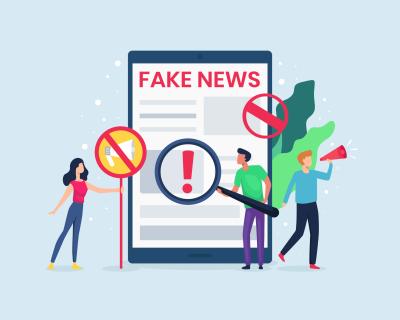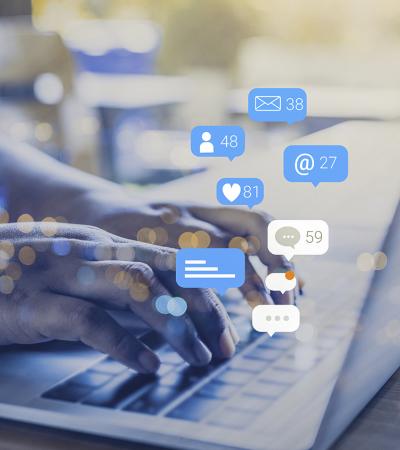People who need media literacy skills may not be eager to sign up for a program or class on the subject; in fact, they may not know their skills are lacking at all.
Creating a program dedicated to media literacy is great (and you'll find lots of program ideas here!), but you can also find ways to introduce media literacy concepts into everyday interactions with your patrons.
>>>Download "Media Literacy in the Library: A Guide for Library Practioners"<<<
>>>Register for a free webinar in the "Media Literacy for Adults" series<<<

Media literacy and the reference interaction
Reference interactions offer a very informal—and public—teaching setting, so you will want to keep your interaction brief and focus on one media literacy skill you want to get across.
Topics like current events, politics and social media provide good openings. When a patron starts talking about politics or another subject that can intensify quickly, media literacy is an excellent way to deflect. Instead of answering questions about politics or religion, ask questions like, “Where do you go for news?” and “Where did you find/hear that information?” Be prepared to direct participants away from in-depth discussions about ideology.
Here are a few examples of how you might respond to patron questions and comments.
"How could anyone possibly vote for (insert politician name, ballot initiative, bill, etc.)?”
“I’ve been hearing a lot of discussion about that topic. It seems like there are a lot of perspectives out there. Would you like me to help you find some information about it?”
“I can tell you feel very passionately about this! Have you found specific resources or outlets that have helped shape your opinions?”
“That’s a good question. What do you think might be motivating voters on the other side? Have you explored this resource (e.g., All Sides, Pro/Con, Opposing Viewpoints, CQ Researcher) that lays out various perspectives on the issue?”
"I keep hearing talk about defunding the police, but our police are already working with social workers! Look at this article I saw posted on Instagram.”
- “Let’s take a look at the Instagram post and try to find the source of that information. Knowing the source may help us determine whether the article is biased or even downright false.”
“I’m looking for information about spiders. My friend Ira posted on Facebook that there’s a spider that lives in your toilet and will bite you as soon as you sit down.”
- “There are lots of different kinds of spiders out there; I’m not sure about any that live in your toilet. I can show you a couple websites where we can look up the validity of content that regularly circulates the internet, and maybe we can look up more about spiders that might pop up in someone’s household.”
“My child is spending a lot of time on their iPad. I’m concerned that the websites and videos they are looking at are harmful and don’t match with the values I want them to grow up with.”
- “That’s a valid concern. With anyone in the world able to easily create and upload content to the internet, it’s important for you and your child to understand where the content they are watching is coming from. Let’s look at how you can learn and teach your child how to evaluate what they are looking at online.”
“I just don’t trust mainstream media anymore. That’s the real fake news!”
- “If you don’t feel comfortable with the world’s largest media outlets, where do you get your news? Why do you feel this source is reliable over others? Let me show you a few tools you can use to determine whether the media outlet you’re looking at has the intent of informing you, rather than persuading or entertaining.”
Resources
Be ready to address whether the patron thinks their information source is reliable and how they determined reliability. To do so, you will want to have resources at the ready that explain key concepts of media literacy and why they are important.
Here are a few that we recommend:
- Media Literacy: 5 Core Concepts and 5 Key Questions for Deconstruction from the Center for Media Literacy
- The National Association for Media Literacy Education (NAMLE)
- Today’s News: Real or Fake? from Action 4 Media Lit Education

